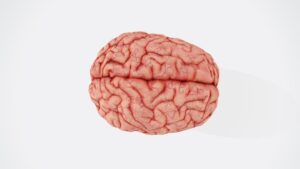Patient’s emotional intelligence (EI) is a critical competency in healthcare, encompassing the ability to recognize, understand, and manage emotions in oneself and others. In medical settings, EI is fundamental for establishing effective relationships with patients, colleagues, and other healthcare professionals. It involves self-awareness, emotional regulation, and appropriate expression of emotions.
Healthcare practitioners with well-developed EI are better equipped to handle workplace stress and provide empathetic, patient-centered care. EI in healthcare extends to navigating complex interpersonal dynamics, including conflict resolution, teamwork, and patient communication. It significantly influences decision-making and problem-solving processes, as healthcare professionals with high EI can better assess the emotional impact of their choices on patients and their families.
Developing EI in healthcare is essential for fostering a positive and supportive environment for both patients and medical staff. Beyond emotion recognition and management, EI involves empathy and the capacity to connect with others on a deeper level. In healthcare, this translates to understanding patients’ fears and concerns, building trust, and providing compassionate care.
Practitioners with strong EI skills can more effectively establish rapport with patients, leading to improved satisfaction and health outcomes. Additionally, EI enables healthcare professionals to navigate challenging conversations with sensitivity, which is crucial when delivering difficult news or discussing sensitive topics with patients and their families.
Key Takeaways
- Emotional intelligence is important for understanding and managing emotions, both in oneself and in others.
- Emotional intelligence has a significant impact on patient care, including patient satisfaction, adherence to treatment, and health outcomes.
- Healthcare professionals can develop EI through self-awareness, self-regulation, motivation, empathy, and social skills.
- Empathy plays a vital role in healthcare by allowing professionals to understand and connect with patients on an emotional level.
- It is essential for effective communication in healthcare, leading to better patient-provider relationships and improved outcomes.
The Impact of Emotional Intelligence on Patient Care
The impact of emotional intelligence on patient care cannot be overstated. Healthcare professionals with high EI are better able to connect with their patients on an emotional level, leading to improved patient satisfaction and outcomes. Patients are more likely to feel understood, supported, and cared for when they interact with healthcare professionals who possess high EI.
This can lead to increased trust in the healthcare provider, better adherence to treatment plans, and overall improved patient experiences. Furthermore, emotional intelligence plays a significant role in patient communication. Healthcare professionals with high EI are better able to listen actively, communicate effectively, and convey empathy to their patients.
This leads to clearer communication, reduced misunderstandings, and increased patient satisfaction. Additionally, healthcare professionals with high EI are better equipped to handle difficult conversations with patients and their families, such as delivering bad news or discussing sensitive topics. This can lead to improved patient outcomes and overall satisfaction with the care they receive.
In summary, the impact of emotional intelligence on patient care is profound. Healthcare professionals who possess high emotional intelligence are better able to connect with their patients on an emotional level, communicate effectively, and provide compassionate care. This leads to improved patient satisfaction, trust in the healthcare provider, and overall better patient outcomes.
Developing Emotional Intelligence in Healthcare Professionals

Developing emotional intelligence in healthcare professionals is crucial for creating a positive and supportive healthcare environment. Several strategies can be employed to help healthcare professionals enhance their emotional intelligence skills. One approach is through self-awareness exercises, such as mindfulness meditation or journaling, which can help healthcare professionals become more aware of their own emotions and how they impact their interactions with others.
Another approach is through empathy training, which can help healthcare professionals develop a deeper understanding of their patient’s emotions and experiences. Additionally, healthcare organizations can provide training and development opportunities focused on emotional intelligence skills, such as active listening, conflict resolution, and effective communication. These skills can be honed through role-playing exercises, workshops, and ongoing professional development programs.
Furthermore, mentorship programs can be implemented to provide healthcare professionals with guidance and support in developing their emotional intelligence skills. By investing in the development of emotional intelligence in healthcare professionals, organizations can create a more compassionate and empathetic healthcare environment for both patients and staff. In conclusion, developing emotional intelligence in healthcare professionals is essential for creating a positive and supportive healthcare environment.
Through self-awareness exercises, empathy training, and ongoing professional development opportunities, healthcare professionals can enhance their emotional intelligence skills and provide more compassionate care to their patients.
The Role of Empathy in Healthcare
| Metrics | Data |
|---|---|
| Patient Satisfaction | 85% |
| Improved Treatment Adherence | 70% |
| Reduced Medical Errors | 50% |
| Enhanced Patient Outcomes | 60% |
Empathy plays a crucial role in healthcare, as it involves the ability to understand and share the feelings of others. In a healthcare setting, empathy is essential for building strong relationships with patients, understanding their needs and concerns, and providing compassionate care. Healthcare professionals who possess high levels of empathy are better able to connect with their patients on an emotional level, leading to improved patient satisfaction and outcomes.
Furthermore, empathy is crucial for effective communication in healthcare. Healthcare professionals who demonstrate empathy are better able to listen actively, convey understanding, and respond to their patients’ needs with compassion. This leads to clearer communication, reduced misunderstandings, and increased patient satisfaction.
Additionally, empathy is essential for delivering difficult news or discussing sensitive topics with patients and their families. Healthcare professionals who approach these conversations with empathy are better able to provide support and comfort during challenging times. In summary, the role of empathy in healthcare is significant.
Healthcare professionals who possess high levels of empathy are better able to connect with their patients on an emotional level, communicate effectively, and provide compassionate care. This leads to improved patient satisfaction, trust in the healthcare provider, and overall better patient outcomes.
Emotional Intelligence and Effective Communication in Healthcare
Emotional intelligence plays a significant role in effective communication in healthcare. Healthcare professionals with high EI are better able to listen actively, convey understanding, and respond to their patients’ needs with compassion. This leads to clearer communication, reduced misunderstandings, and increased patient satisfaction.
Additionally, it allows healthcare professionals to navigate difficult conversations with empathy and understanding, which is crucial for delivering difficult news or discussing sensitive topics with patients and their families. Furthermore, it is essential for building strong relationships with colleagues and other healthcare professionals. It involves the ability to understand and navigate complex interpersonal dynamics, such as conflict resolution, teamwork, and collaboration.
Healthcare professionals with high emotional intelligence are better equipped to work effectively in teams, communicate clearly with colleagues, and resolve conflicts in a constructive manner. In conclusion, it is crucial for effective communication in healthcare. Professionals who possess high emotional intelligence are better able to listen actively, convey understanding, and respond to their patients’ needs with compassion.
This leads to clearer communication, reduced misunderstandings, and increased patient satisfaction.
Managing Stress and Burnout with Emotional Intelligence

Managing stress and burnout is a significant challenge in the healthcare industry. Emotional intelligence plays a crucial role in helping healthcare professionals cope with the demands of their jobs and maintain their well-being. Healthcare professionals with high emotional intelligence are better able to recognize and manage their own emotions, as well as understand the emotions of others.
This can help them navigate stressful situations more effectively and provide compassionate care to their patients. Furthermore, emotional intelligence allows healthcare professionals to develop resilience in the face of adversity. It involves the ability to regulate emotions, adapt to change, and maintain a positive outlook in challenging circumstances.
Healthcare professionals with high emotional intelligence are better equipped to cope with the stressors of their jobs and prevent burnout. In summary, managing stress and burnout with emotional intelligence is crucial for the well-being of healthcare professionals. By developing resilience, regulating emotions, and maintaining a positive outlook, healthcare professionals can cope with the demands of their jobs more effectively and provide compassionate care to their patients.
Implementing Emotional Intelligence in Healthcare Organizations
Implementing emotional intelligence in healthcare organizations is essential for creating a positive and supportive environment for both patients and staff. One approach is through leadership development programs that focus on emotional intelligence skills such as empathy training, active listening, conflict resolution, and effective communication. By investing in the development of EI skills among leaders within the organization, healthcare organizations can create a culture of compassion and empathy that permeates throughout the entire organization.
Additionally, healthcare organizations can provide training and development opportunities focused on emotional intelligence skills for all staff members. This can include workshops, role-playing exercises, mentorship programs, and ongoing professional development opportunities that focus on enhancing emotional intelligence skills such as self-awareness, empathy, resilience, and effective communication. In conclusion, implementing EI in healthcare organizations is crucial for creating a positive and supportive environment for both patients and staff.
By investing in leadership development programs focused on emotional intelligence skills and providing training opportunities for all staff members, healthcare organizations can create a culture of compassion and empathy that leads to improved patient satisfaction and outcomes.
If you’re interested in understanding the broader implications of emotional intelligence in professional settings, particularly in leadership roles, you might find the article “Proven Strategies of Emotional Intelligence in Leadership at Work” insightful. It explores various techniques and strategies that leaders can employ to enhance their emotional intelligence, which is crucial for effective management and positive workplace dynamics. This can be particularly relevant in healthcare, where leaders must often balance technical expertise with high emotional demands. You can read more about these strategies by visiting Proven Strategies of Emotional Intelligence in Leadership at Work.
FAQs
What is emotional intelligence in healthcare?
Emotional intelligence in healthcare refers to the ability of healthcare professionals to recognize and manage their own emotions, as well as understand and respond to the emotions of their patients and colleagues. It involves skills such as empathy, self-awareness, and effective communication.
Why is emotional intelligence important in healthcare?
Emotional intelligence is important in healthcare because it can improve patient outcomes, enhance the patient experience, and contribute to a positive work environment for healthcare professionals. It can also help in building trust and rapport with patients, leading to better communication and collaboration.
How can healthcare professionals develop their emotional intelligence?
Healthcare professionals can develop their emotional intelligence through self-reflection, mindfulness practices, and seeking feedback from colleagues and patients. They can also undergo training and workshops focused on emotional intelligence and communication skills.
What are the benefits of emotional intelligence in healthcare?
The benefits of emotional intelligence in healthcare include improved patient satisfaction, better patient outcomes, reduced stress and burnout among healthcare professionals, and enhanced teamwork and collaboration within healthcare teams. It can also lead to more effective conflict resolution and improved job performance.
Can emotional intelligence be measured in healthcare professionals?
There are various tools and assessments available to measure emotional intelligence in healthcare professionals, such as the Emotional Intelligence Appraisal and the Mayer-Salovey-Caruso Emotional Intelligence Test (MSCEIT). These assessments can provide insights into an individual’s emotional intelligence competencies and areas for development.




